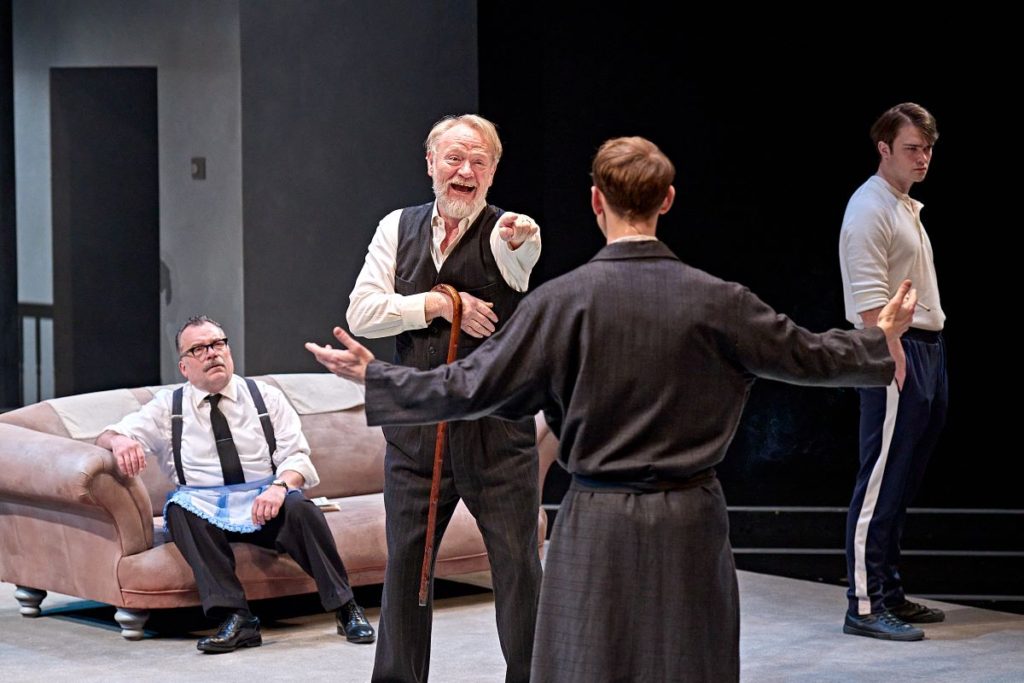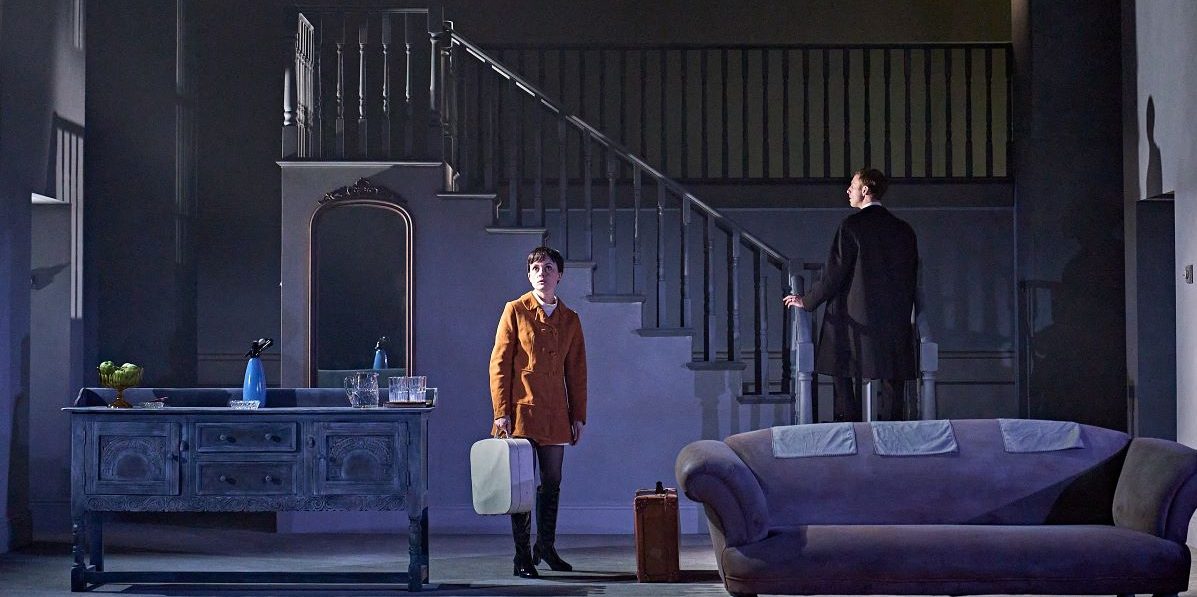Matthew Dunster’s production of Pinter’s iconic play retains all of its troubling power, whilst managing to give its sole female character an agency she does not always possess.
The audience enters to heavy, foreboding drums and drifting haze before the stage clears and silence descends. The haze feels fitting — the set itself is full of grey and muted colours, a world drifting a little, men that have allowed themselves to settle into an embittered routine. Moments of particular violence or piquancy are harshly spotlit, lifting them out of the realms of naturalism, suggesting a level of fantasy from the characters’ themselves, and emphasising the little shocks of which Pinter is so fond.
The Homecoming is full of the tortured escapades of masculinity, and the first act in particular consists of an eager, constant undercutting of each other during which our laughter is complicit. The more tender-hearted Sam (Nicolas Tennant) provokes emasculating chuckles as he bites into an apple whilst his brother Max (Jared Harris) ponders why he’s never found a bride. The recurring apple motif has obvious undercurrents of The Fall, of the knowledge that Sam holds close to his chest until the plays closing scenes — a secret he reveals to no avail, his impotency writ large as he falls to the ground and the action carries on undeterred. Tennant’s excellent sense of physical timing for both comedy and pathos is on full display here.

Harris’ Max vividly fantasises about his own power and successes, but his wails are similarly fruitless — his sons Lenny and Joey pay him little attention, and however much he tries to claim the mother-father role in their life they reject his narrative and his affection. “Don’t talk to me about the pain of childbirth — I suffered the pain” he insists, absurdly, the pull of his own ego and desire for control muddling his masculine role. Max is physically proprietary of Ruth (Lisa Diveney), hand on her knee, pressed against her side, but this claim falters and dies by the end. Even Lenny’s own control unfurls rapidly once he meets Ruth, a feminine presence he doesn’t fully comprehend and fails to threaten. Lenny is played with swagger and sharp-edged depth by an excellent Joe Cole, who moves from complete insouciance to dawning comprehension of his own defeat with complete conviction.
By Act Two the music has transformed into a less overt threat, a game that the men of this household perhaps do not know quite how to play. Ruth is fluent in every language any of the men attempt, muddying the mother/whore dichotomy they try desperately to fit her into. In contrast, her jittery husband Teddy (Robert Emms) is never at home, never able to fluently communicate with his family as she can, not even in his own language of philosophical discussion. Ruth is dressed in slinky, sexy clothes from her first moments, her sheer black robe a far cry from Pinter’s original bland description that ‘[they] are wearing dressing gowns’. The costuming decisions, Dunster’s staging and Diveney’s sinuous, authoritative silences, all come together to suggest that the ending may have been in place from the start.
Ruth assumes patriarchal power and language — and the affection of Max’s boys, never given freely to him, treated with suspicion and derision throughout the play — like it is her birthright. The ending is slightly less ambiguous in this particular production: when Max wails that Ruth will do the dirty on them, we believe it. Perhaps she already has.

